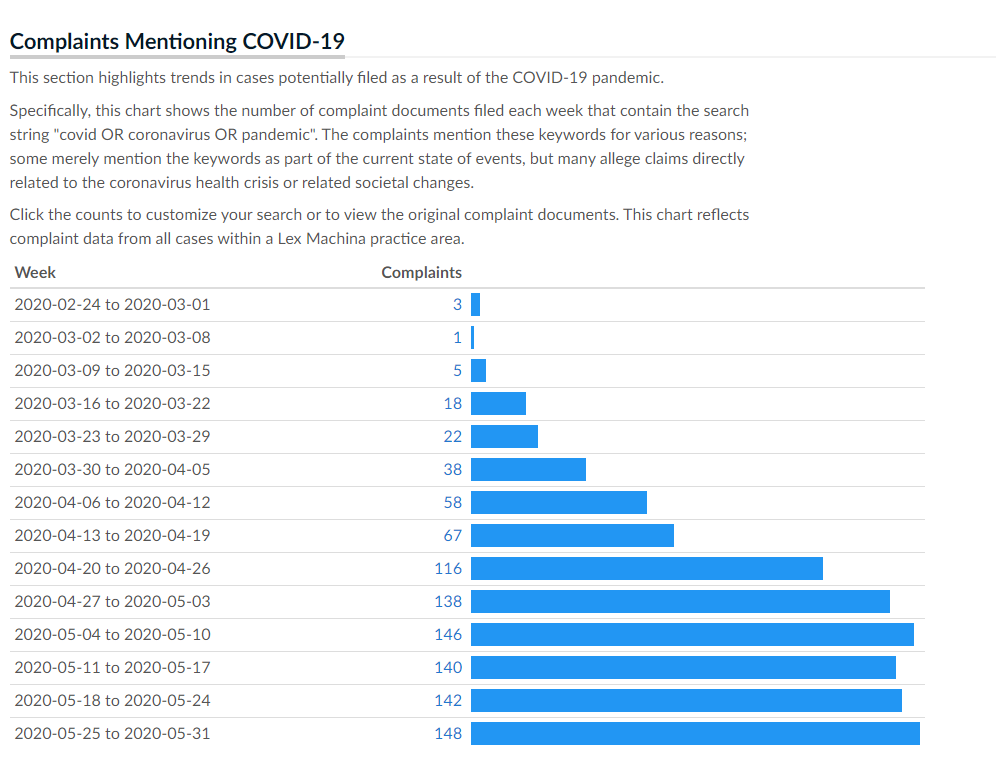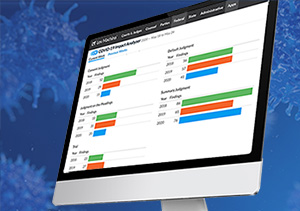The Lex Machina team is excited to introduce the new COVID-19 Impact Analyzer . COVID-19 has impacted all aspects of our lives and the legal profession, and the uncertainty and speculation have been obstacles in moving forward. Lex Machina’s COVID-19 Impact Analyzer can eliminate some of the guesswork in the legal profession by providing the data and analytics to help everyone understand how COVID-19 has affected federal district litigation.
The COVID Impact Analyzer provides data and analytics regarding:
- New total case filings
- New case filings by practice area
- Findings (i.e., court-enforceable determinations)
- Complaints that mention COVID-19 or related terms

Lex Machina used a combination of machine learning and attorney review to present the most comprehensive and accurate data possible in its COVID-19 Impact Analyzer. The easy-to-use interface will allow individuals and organizations to search the data by week, beginning the week of February 24, 2020, and compare the data against previous years. Among the revealing insights that may be gleaned from the COVID quick tool are:
- Case filings for insurance, employment, and securities cases consistently increased during weeks in March, April, and May 2020 compared to 2019.
- Findings at trial were down during weeks of March, April, and May compared to 2019.
- Complaints filed in Lex Machina practice areas that mentioned COVID-related keywords increased rapidly during March and April, and reached a steady rate of between 142-149 complaints per week throughout May.
In keeping with Lex Machina’s public interest origins, a version of the COVID-19 Impact Analyzer is available to members of the general public as well as subscribers. By allowing general access to Lex Machina’s proprietary analytics in order to uncover valuable insights into the effect of COVID-19 on the federal district court system, Lex Machina strives to reduce some of the uncertainty and speculation in the legal profession. The impact of COVID-19 continues, but Lex Machina’s data-driven insights can play an essential role in understanding that impact in the legal world.
